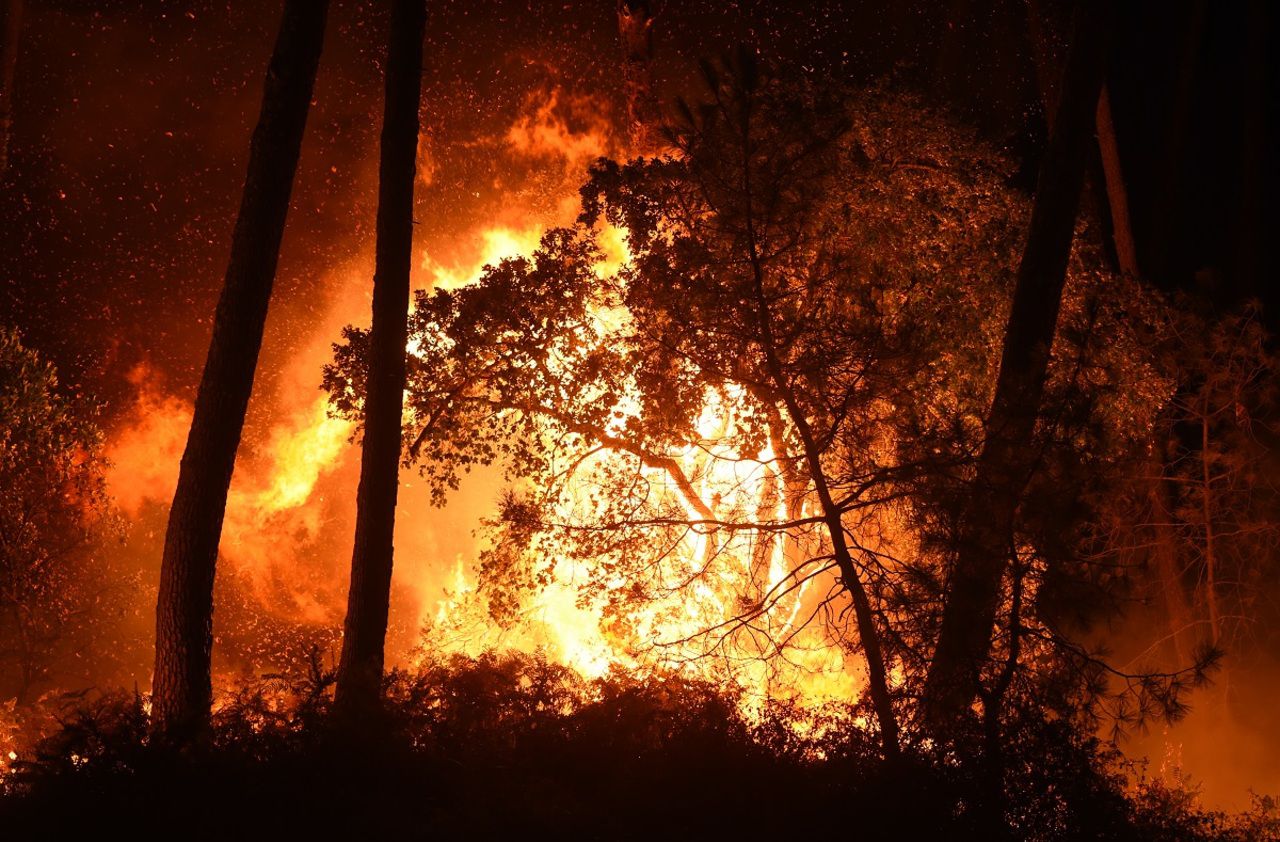Thousands of hectares going up in smoke, homes ravaged, lives sometimes destroyed ... Every year, forest fires of human origin and their consequences punctuate the summer news. The accidental cause is frequent, but a third of these claims are due to intentional acts, estimated the National Federation of firefighters in 2019.
At the beginning of August, a 16 year old teenager was indicted for willful destruction by fire of the forest of Chiberta, in Anglet (Pyrénées-Atlantiques). On July 24, a man suspected of having caused 16 fires in Côtes-d'Armor was imprisoned. And the word arsonist has resurfaced, in the media and on social networks.
As a reminder, arson in woods and forests is punishable by a penalty ranging from fifteen years of criminal imprisonment and a fine of 150,000 euros to life imprisonment and a fine of 200,000 euros.
No mobile
Not all fires of criminal origin are motivated by pyromania, warns Julie Palix, psychologist. Considered a personality disorder, it is defined by "the action of causing fires and fires repeatedly, without criminal motive or seeking gain or reward".
Pyromania is therefore "to be distinguished from the arsonist whose actions are directed towards personal or ideological profit (sabotage, profit, revenge or socio-political ideology such as terrorism)", notes the research project manager at the unit of research in psychiatry and forensic psychology at the Vaudois University Hospital Center, in “Incendiaries and pyromaniacs” (Swiss Medical Review, 2015).
“The aggressiveness of arsonists is indirect, it is not directed against someone specific. They have no apparent motive, explains Roland Coutanceau, psychiatrist and criminologist. It is an obsession with the pleasure of seeing a fire. Why fixate on the fire and not on something else? It is a mystery of the human soul, there is a fetishistic side. "
Drive, megalomania
The act is not premeditated, it is an impulse. "Otherwise the individual would be able to think about his excitement, to understand its source and to control it", develops the psychiatrist Pierre Lamothe, former head of the regional medico-psychological service of the prisons of Lyon. “It’s a rage that comes from within, a bit like a driver farting a cable on the road. "
Arsonists represent 1% of the population. With them, "we find an addiction to excitement," he continues. “The arsonist is unable to bear the frustration, but we cannot see him. He doesn't have a tantrum, can't express his excitement. So to appease this state of agitation, he "discharges by setting fire". Then, “he is jubilant”. “He chuckled. He's glad to know he started it all. "
Newsletter - Most of the news
Every morning, the news seen by Le ParisienI'm registering
Your email address is collected by Le Parisien to enable you to receive our news and commercial offers. Learn more
Arsonists "are excited and proud to create a work of destruction," adds Roland Coutanceau. "It's megalomania, a way of attracting attention: who is the author of this beautiful show which runs on a loop on the news channels? This is me . Even if the enjoyment is secret, it remains enjoyment. "
"Young people, in failure"
In 99% of cases, arsonists are men. “They are often people in failure (professional, emotional, social…), affirms the psychiatrist and criminologist. And it is this failure that will generate a narcissistic will. They feel they are not given enough consideration. Many justify themselves by saying: no one listens to me ; I am taken for less than nothing ; they never take care of me … ”
Arsonists are young people, usually under 30 years old. “They are immature. They underestimate the damage a fire can cause. However, the older we get, the more chance we have of understanding the consequences. When they are confronted with their act, "they can be overwhelmed by their work, horrified of the consequences and, then, they stop".
“There are also repeat offenders, they are the most egocentric,” adds Roland Coutanceau. They say they can't help it. It's like a hard drug. They know the possible consequences, they know they can end up in jail, but they get so much pleasure from setting the fire that they keep going. "
Disinhibited by alcohol or drugs
As with the general criminal population, arsonists often act when they are alcoholic or have used drugs. “However, a positive childhood fire experience, emotional avoidance and expertise in fire control would be unique to them,” writes psychologist Julie Palix.
In these people, "the education received in childhood did not make it possible to learn to control the expression of his excitement," says Pierre Lamothe. And to cite as an example parents who would have censored any form of anger or joy in their child. “Moreover, the majority of arsonists suffered from enuresis until late, 11 years old. Wetting the bed was their only way of expressing dissatisfaction. "
For Roland Coutanceau, on the other hand, the explanation would be multifactorial. "Why are people tempted by destructiveness? There is no absolute answer, ”he believes.





/cloudfront-eu-central-1.images.arcpublishing.com/prisa/RSVSTQFDNZHWVNNUYWZ2MAMOUE.JPG)









